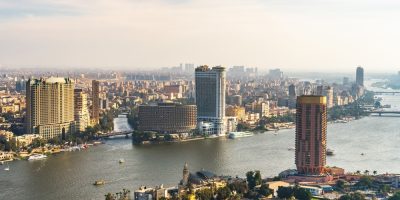-
Argentina
Foreign investments in Argentina – Sociedades Anónimas (“SA”)
14 March 2017
- Corporate
- Investments
In a previous post we outlined how a foreign investor may conduct a business in Argentina and, specifically, we analysed the main characteristics of the Limited Liability Companies (Sociedades de Responsabilidad Limitada “SRL”).
In this post we are going to focus the attention on another type of company: the Joint Stock Corporation – Sociedades Anónimas (“SA”).
The main differences between Sociedades de Responsabilidad Limitada and Sociedades Anónimas are the following:
- The transfer of SRL quotas shall be registered in the Registry of Commerce. On the contrary, the transfer of shares shall only be registered in the Shareholders’ Register of the SA.
- Number of partners cannot be more than 50 in the SRL, while in the SA there is only the minimum number of 2.
- Board of Directors of a SA has the obligation of meeting at least every 3 months, while in the SRL the management does not have such obligation.
- In a SRL, the partner who has the majority vote does not need the vote of another partner to approve decisions. On the other hand, one shareholder with the majority vote can manage a SA without the favorable vote of any other shareholder.
Main characteristics of the Argentinian Stock Corporations: las Sociedades Anónimas (“SA”)
Shareholders: A minimum of two shareholders is required, and they may be resident or non-resident in Argentina.
Corporate capital: The minimum capital currently required by law is equal to Argentina Pesos (ARS) 100.000 (approximately USD 6.250), of which only 25% must be paid in at the time of the corporate organization. The balance shall be paid within a maximum term of two years from the incorporation. However, the Public Registry of Commerce may require an initial corporate capital amount higher than ARS 100,000 in case – having regards to the nature and characteristics of the businesses involved by the corporate purpose – the corporate capital is considered overtly inappropriate.
Liability SA: Shareholders liability is limited to the amount of capital invested. The sole limitation to this rule is the “lifting of the corporate veil” doctrine, applicable only when a company has been organized or used for fraudulent purposes, in order to abuse the liability limitation.
Legal Books and Records SA: There are 4 company books and records provided by the law: 1) Shareholders’ Register; 2) Register of attendance at General Meetings; 3) Minutes of General Meetings; and 4) Minutes of Directors’ Meetings.
Administration: The Board of Directors is the body in charge of the company administration. Its members do not need to be shareholders or residents in Argentina. However, the law requires that the Board of Directors meets at least four times a year with the physical presence of the majority of its members. The law also requires that the majority of the Directors are domiciled in Argentina.
If the corporate capital amounts to ARS 10.000.000 (approximately USD 625.000) or more, the minimum number of Directors is three; otherwise, the law does not impose any minimum number of directors.
The President of the Board of Directors has the power of legal representation of the company and, in case of his/her absence, the Vice President may act as the company’s legal representative.
In addition to and notwithstanding the above, the company’s representation may be conferred through powers of attorney issued by the Board of Directors for specific purposes (banking, administrative affairs, judicial, etc.).
Supervision SA: If the SA’s corporate capital is lower than ARS 10.000.000 no Syndic (a kind of internal auditor, with the duty to ensure that the company formally complies with the law) need to be appointed. If the capital is above said amount, the S.A. must organize a supervisory body composed of Syndics.
The SA that does not make public offer of its stock capital may appoint only one principal Syndic and one alternate Syndic. The principal Syndic and the alternate Syndic are elected by the Shareholders. To be elected Syndic it is necessary to be a lawyer or a public accountant domiciled in Argentina. Employees, directors or managers of the company or its parent or subsidiary companies may not be syndics. Shareholders may remove Syndics at their own discretion.
Governing body: The corporate authority governing the SA and adopting resolutions is the Shareholders’ Meeting, competent – among other issues – to approve the Annual Balance Sheet of the company, to appoint and/or remove its Directors and Syndics and to deal with any other item related to the company’s ordinary course of business.
Financial statements, Balance Sheets and Accounts SA: Annual financial statements must be submitted for the consideration of the Stakeholders’ Meeting. Argentine law provides that the Annual financial statements must be filed also with the Public Registry of Commerce.
The author of this post is Tomás García Navarro.


























